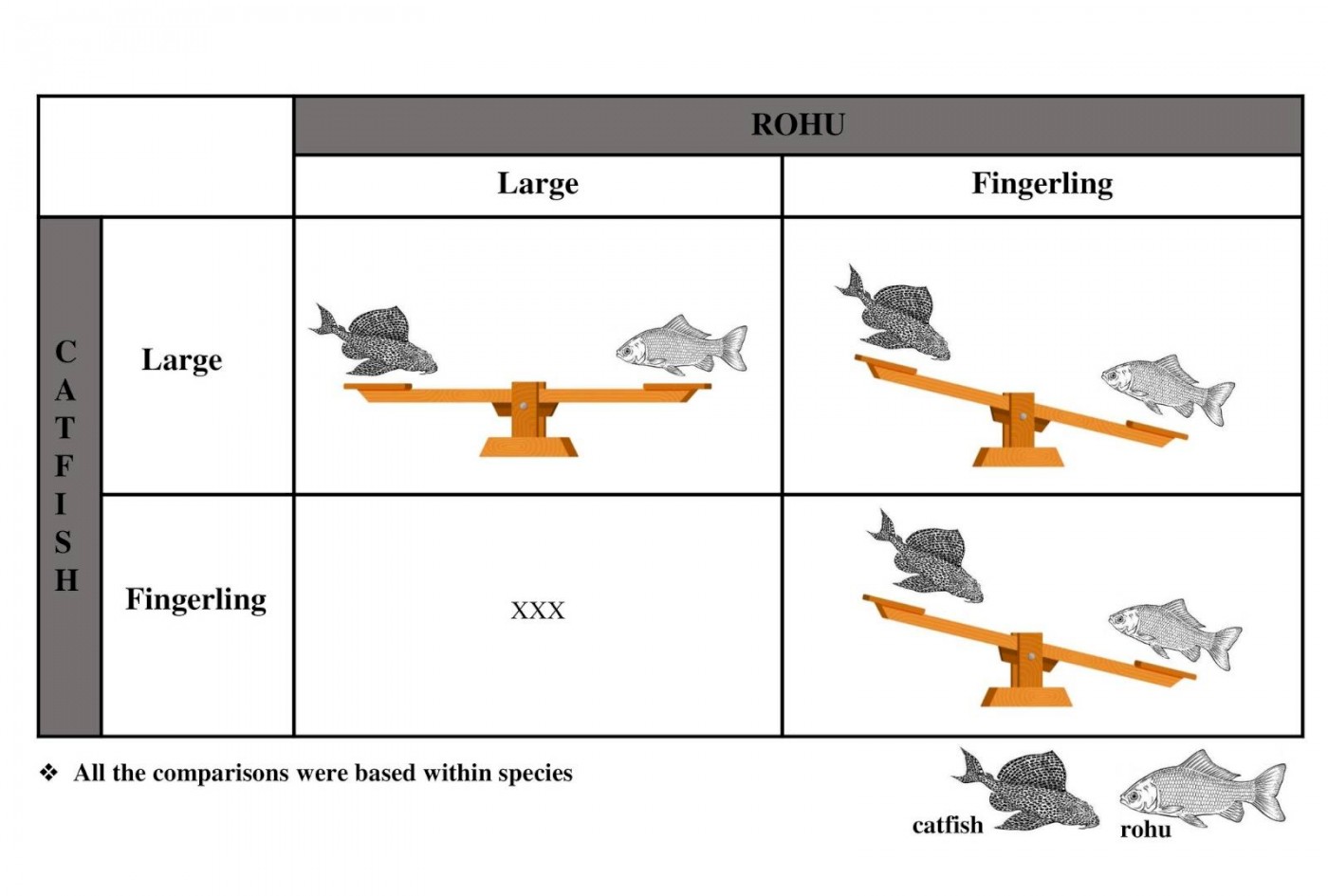21 May 2024
Study Reveals Possible Role of Invasive Catfish in Threatening the Sustenance of Fingerling Rohu

The animal world is characterised by widespread competitive interactions between various species. In this context, the Amazon sailfin catfish, an invasive species, may behaviourally outcompete fingerling rohu, a keystone species found in Southeast Asia, thereby threatening the sustenance of species native to several freshwaters around the globe, reveals a study by Ahmedabad University Professor Ratna Ghosal and Research Scholar Suman Mallick. The study, conducted jointly with Jitendra Kumar Sundaray from the Fish Genetics and Biotechnology Division of ICAR-Central Institute of Freshwater Aquaculture, Odisha, reveals that this might impact several ecosystems in the animal world.
The research suggests that overall, the survival of a species greatly depends on the nature of its interactions within a given environment, and thus, exotic invasions to an ecosystem may also impede the behavioural interactions of the natives within the introduced system. The research highlighted competition dynamics between two different size classes of each species, large and fingerling, in the context of feeding behaviour. Large-size rohu showed similar or higher in the presence of catfish, indicating rohu to be a strong competitor. However, fingerling rohu showcased reduced feeding duration in the presence of both large-size and fingerling catfish, along with displaying freeze (alarm) behaviour, but the presence of rohu had no significant impact on the feeding durations of catfish.
The research, published in the journal Behavioural Processes, is based on Georgy Frantsevich Gause's competitive exclusion principle, which states that competition between any two species may vary on both temporal and spatial scales. Additionally, he also argued that in competitive interactions for resources, for example, food and space, one species may outcompete the other, resulting in the exclusion of the weaker species from the system or a given habitat.
The results in the study, along with an analysis of similar studies, therefore indicate that the fate of interspecies competition may depend on the size or age of the fish species, and expressions of different behaviours (freeze or aggressive behaviours) may vary depending on the competitive ability of the interacting partner.



